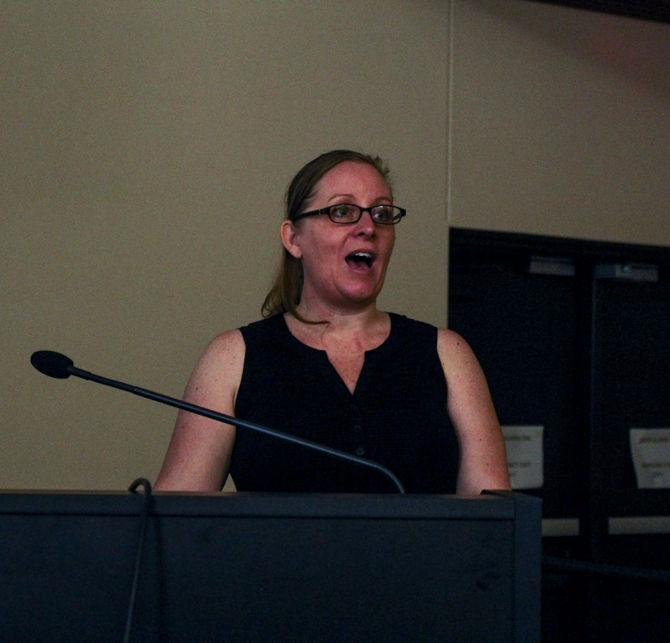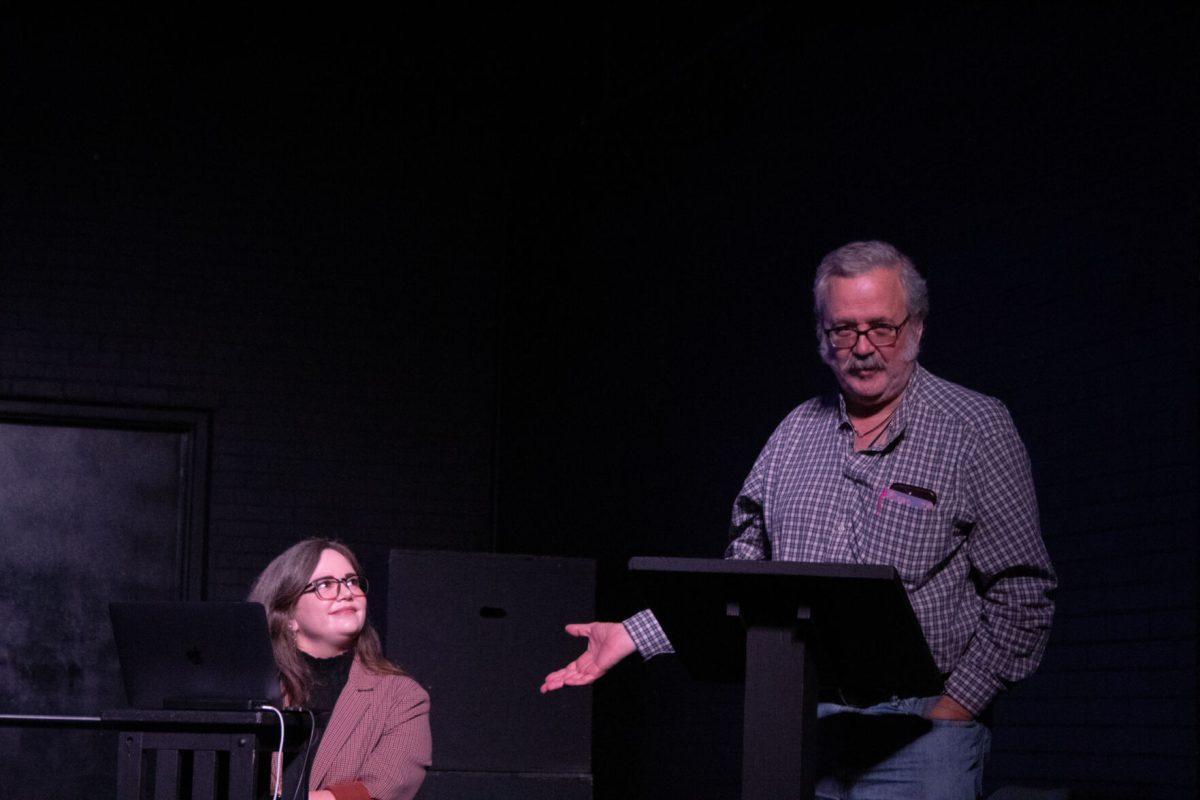During her presentation at the University on April 20, Occidental College associate professor Lisa Wade’s research into college hookup culture saw data gathered from unnamed universities in California and Louisiana.
Study participants were asked to keep diaries of their sexual activity over a semester during their freshmen year and were interviewed about their experiences, revealing a variety of results.
What exactly constituted a hookup was left to the discretion of the study’s participants, Wade said, and their definitions varied. Only 40 percent of the reported hookups included sexual intercourse.
The popular perception of hookups as being between complete strangers was shown to be an exaggeration, with 50 percent of the reported hookups occurring between people who knew each other and had hooked up together before, according to the data. “This idea that Millennials are just a different sexual beast is not showing up in the data,” Wade said. “On average your generation of college students has no more sexual partners than … your parents did at your age.”
According to the data, white people, heterosexuals, the able-bodied, cisgendered people, and those from upper- and middle-class backgrounds hook up the most. Students of color, sexual minorities, trans people, the disabled, and those from poor and working class backgrounds hook up the least. Regular church attendance was only correlated with reduced hookups among women.
“In fact, men who go to church regularly hook up more than male atheists,” Wade said.
The “erotic marketplace” is racialized, with African-American women and Asian men considered at the bottom of desirability by respondents, according to the research. Asian women, African-American men and sexual minorities also face challenges navigating hookup culture.
“In general, the scene on campus for students interested in exploring same sex desire isn’t very friendly even if it is not overtly homophobic,” Wade said.
Many non-heterosexual students primarily use apps such as Grindr or Tinder to procure hookups, and they tend to have them off-campus, Wade said.
Religious studies and sociology senior Stephanie Lowry said she was not surprised by which groups hooked up the most and the least, noting that LSU’s hookup culture is typical for a southern university, dominated by upper- and middle-class white fraternity and sorority members.
“It doesn’t seem particularly promiscuous, but also not that conservative as well.” Lowry said.
Other research indicated that throughout their college careers 25 percent of students never hook up, 30 percent do it three times or less, another 30 percent hookup four to nine times, and only 15 percent hookup 10 times or more.
“I don’t think we could say that there’s a hookup epidemic on campus, I don’t think there’s necessarily a problem with student’s sexual behavior,” Wade said. “I don’t think it’s just women giving men what they want … if that’s what oppression looks like, it’s a very weak kind of oppression.”
While the moral panic over hookup culture misrepresents the reality, the narrative of college campuses as places of utopian sexual liberation with students freely experimenting is not reflective of the data. There just isn’t that much sexual activity happening in general, Wade said.
However, many students think otherwise. While only a minority have frequent hookups, many respondents reported feeling like doing so was compulsory and that low or zero participation was a sign of social failure.
“I felt like a loser, or uncool.” said an unnamed male respondent. “As confident in myself as I am … thoughts kept running through my head like ‘You’re at college and you’re not having sex. What’s wrong with you?’”
Others complained of a lack of affection between partners and related lack of pleasure, particularly among women. The likelihood of orgasm in a hookup is 19 percent for women with men and 44 percent for men with women,compared to 67 percent and 84 percent for those having sex within a relationship.
Wade said she recommended that people show more affection and caring towards their sexual partners, citing the disparity in pleasure between hookups and relationship sex as indicative that attitude towards partners matters.
“Never lose sight of their personhood,” Wade said. “Be honest. Be warm. Be attentive. Be open.”
Research into hookup culture dispels myths, highlights issues
By Trent Parker
April 28, 2016
Associate professor of Sociology at Occidental College, Lisa Wade, presents her research about hookup culture in college and Tigerland in her talk entitled Tales from Tigerland: real facts and true stories about hooking up in college, on April 20, 2016 at Hill Memorial Library.
More to Discover








